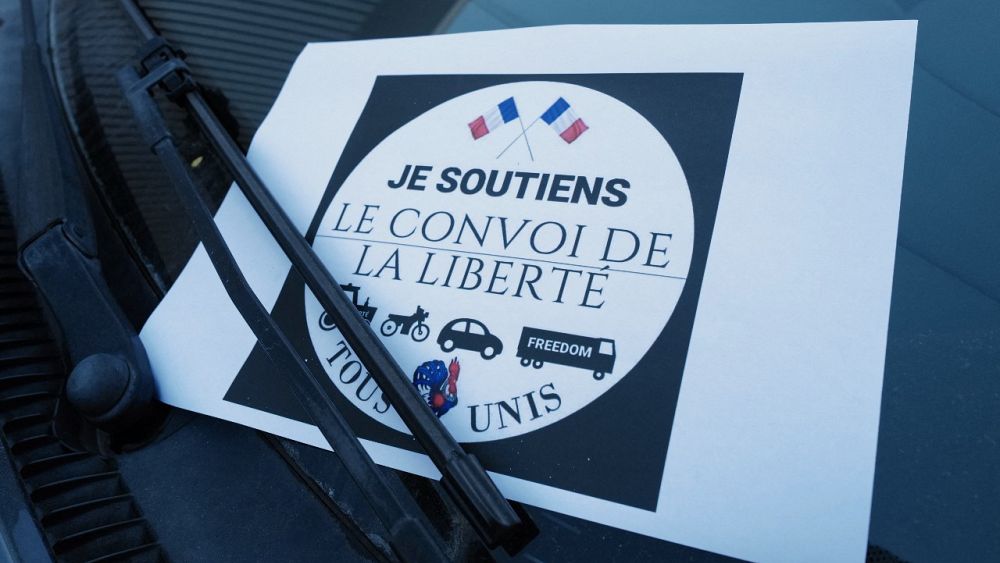
Police in Paris have banned a planned demonstration in the French capital this weekend as part of a so-called “Freedom Convoy”, inspired by a truckers’ protest against COVID restrictions in Canada.
The authorities claim the movement’s objective is to “block the capital” from Friday before heading to Brussels for a wider protest.
Measures will be put in place to “prevent the blocking of roads, issue fines and arrest those who break this ban,” the police headquarters said in a statement (in French). The ban will last from Friday until Monday.
Thousands of opponents of France’s vaccine pass have said on social media they intend to converge on Paris.
On Wednesday several convoys left Nice, Bayonne and Perpignan in the south, aiming to reach the capital by Friday night. There have been calls to join Brussels for a “European convergence” scheduled for Monday.
Weeks of protests in the Canadian capital Ottawa have led to a state of emergency being declared, while the blockade of a bridge linking Canada with the US city of Detroit threatens to disrupt the North American car industry.
The Paris police statement issued a reminder that obstructing traffic can be punished by a two-year prison sentence, a €4,500 fine, and other measures enabling vehicles to be impounded and driving licences suspended.
“The organizer of a banned demonstration can be punished by six months’ imprisonment and a fine of €7,500,” the préfecture said, adding that those taking part could receive a fine of €135.
The French government was aware of a general weariness with the pandemic and the restrictions, spokesman Gabriel Attal said on Wednesday.
“There are more than a few hundred thousand people who are fed up with living with this virus and, in France as everywhere in the world, political movements, often radical, have sought to capitalise on this weariness.”
But, he added, “France is probably one of the countries in Europe which has taken the least restrictive measures”.
Organisers of the convoys had mentioned no specific assembly area in the capital. They had not directly called for a blockade and called on those taking part to be respectful and refrain from disorder, violence and aggressive behaviour.
Those involved appear to come from a variety of backgrounds, many with concerns beyond health restrictions that also cover the economy and the cost of living.
Several social media groups have been set up, the largest attracting more than 300,000 people. But how many are planning to converge on Paris is unknown.
The protesters’ calls appear to echo the 2018 “yellow vest” (“gilets jaunes”) movement when thousands took the streets in opposition to unpopular fuel taxes. Demonstrations quickly mushroomed into a larger protest movement.
A new law passed in January requires all individuals aged 16 or older to show proof of vaccination or recent recovery from the disease to enter any bars and restaurants or use inter-regional transport.
While France boasts a vaccination rate higher than the European Union average, according to EU data, the country is also home to a vocal minority that believes vaccine mandates infringe on their rights.
Countless studies have found that COVID-19 vaccines are safe and extremely effective in preventing severe cases of the disease and hospitalisations.
The French authorities have said they are considering lifting the vaccine pass by the end of March or beginning of April, if the pandemic recedes.
France goes to the polls in April for the presidential election. Emmanuel Macron currently leads in opinion polls, though he is yet to declare formally that he will run for a second term.

